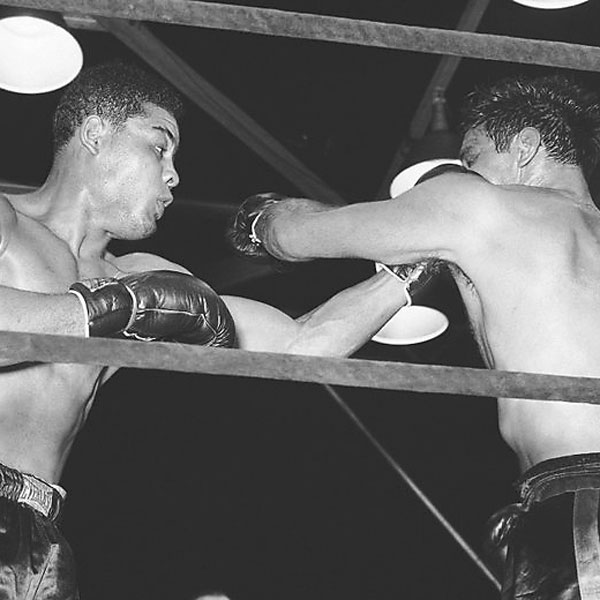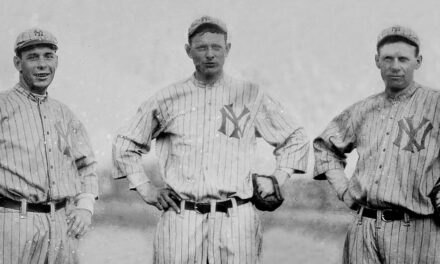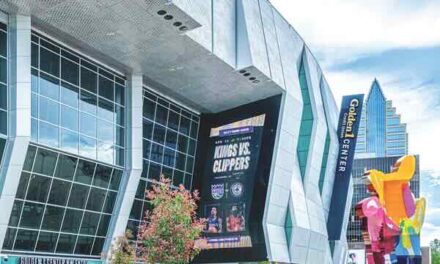For sports fans who pray 2021 is the year athletes shut up, a reality check: It won’t happen. Athletes have always talked, even before anyone cared what they had to say. They aren’t going to stop speaking their minds anytime soon.
Jack Johnson, who in 1908 became the first Black fighter to win the world heavyweight championship, was never at a loss for words. But his most enduring quote from his “Fight of the Century” in Reno against ardent white supremacist and former champ Jim Jeffries was eloquently simple: “May the best man win.” Johnson beat the bigot in 15 rounds.

Race riots erupted across the United States. At least 20 people were killed.
Since then, athletes have stood in locker rooms, street corners and court houses to propound on politics, civil rights and equality. Even the Kings got involved.
The dream of shutting up athletes gained urgency last year when the World Series and NBA Finals bombed on TV. Both recorded lowest-ever ratings. Many commentators suspect audiences vanished in response to remarks by players in support of Black Lives Matter and police reform—a protest of a protest.
But the shrunken TV numbers were more likely a coronavirus coincidence. The pandemic disrupted sports seasons and forced games to be played without fans. The thrill was gone.
And besides, there’s nothing unusual about loudmouth sports stars. The outspoken roster reaches back decades before LeBron James and Colin Kaepernick were born. Then as now, blurting out hard truths takes courage. It’s not a road to popularity.
Muhammad Ali presented his thoughts on the Vietnam War and military draft. Curt Flood attacked baseball rules that treated him as an indentured servant. Bill Russell belittled racist fans of the Boston Celtics. Billie Jean King promoted gender equity and opposed pay discrimination in tennis.
Some athletes lost endorsement deals and bonuses for speaking their minds. Some sacrificed careers. The athlete who strays into the political arena takes a dangerous path. Many sports fans don’t want to hear about it.
The Kings have been largely apolitical since nesting in Sacramento in 1985. They promoted Black Lives Matter—but so did countless others. I imagine the absence of activist Kings has more to do with the team’s incompetence than anything else.
One hallmark of the truly impactful outspoken athlete is they must be winners—when you play for a habitual loser, nobody cares what you think.
Like most pro teams, Kings management has long encouraged players to avoid making politically controversial statements for fear of upsetting sponsors or fans. Silence is golden to management.
But the Kings didn’t always duck controversy. It’s important to remember the franchise broke the pro basketball color barrier in 1946 when the team signed an African American, William “Dolly” King, in the National Basketball League, predecessor to the NBA.
King played one season for the Kings—known as the Rochester Royals—and was paid top dollar. He roomed with a White player, Bob Davies, on the road and shared an apartment with Jewish and Italian teammates, Red Holzman and Fuzzy Levane. When a restaurant refused to serve King, the whole team walked out.
Six months after King joined the Royals, Jackie Robinson broke the baseball color barrier with the Dodgers. But unlike the Royals, racist Dodgers refused to socialize with their Black teammate. Sadly, Jackie ate alone.
By all accounts, King and Robinson weren’t eager to press their views on others. They wanted to do their jobs and go home—which no doubt made them more valuable in the eyes of their employers.
Boxing champ Joe Louis was another legendary athlete who did his job and shut up. When Louis visited Sacramento for two informal exhibition bouts against Bobby Lee and Big Boy Brown at Memorial Auditorium in December 1945, he disappeared into a cheap West End hotel on J Street and issued no public comments.
His friend and former opponent Buddy Baer, who served as sergeant at arms for the state Legislature, often tried to get Louis back to Sacramento, without luck. “He tended to avoid the public,” Baer once said. “He never came back here. Always had an excuse.”
R.E. Graswich can be reached at regraswich@icloud.com. Follow us on Facebook, Twitter and Instagram: @insidesacramento.















